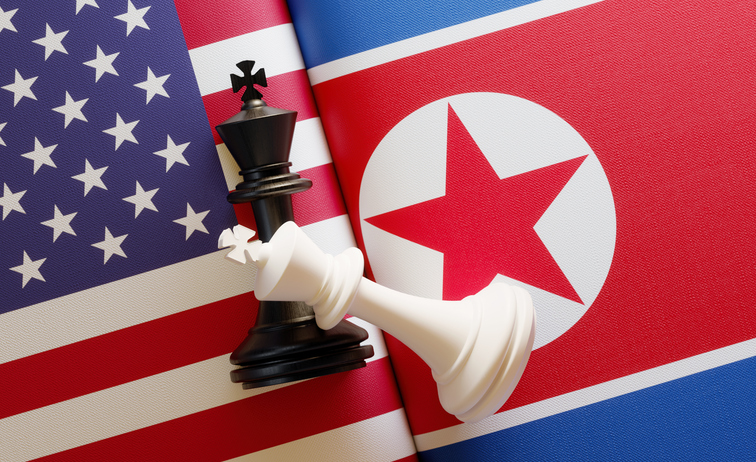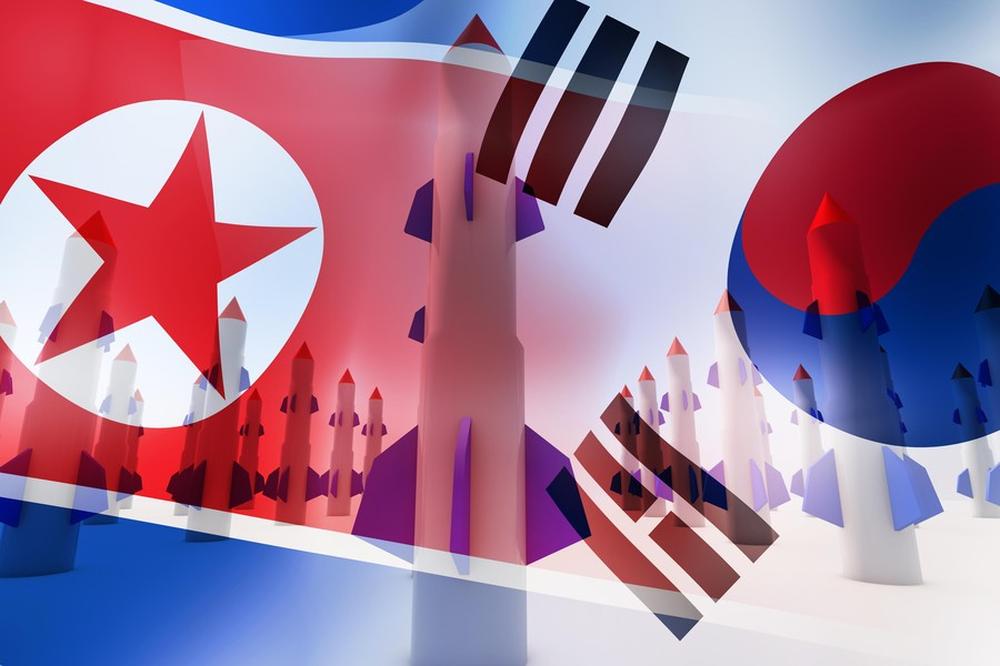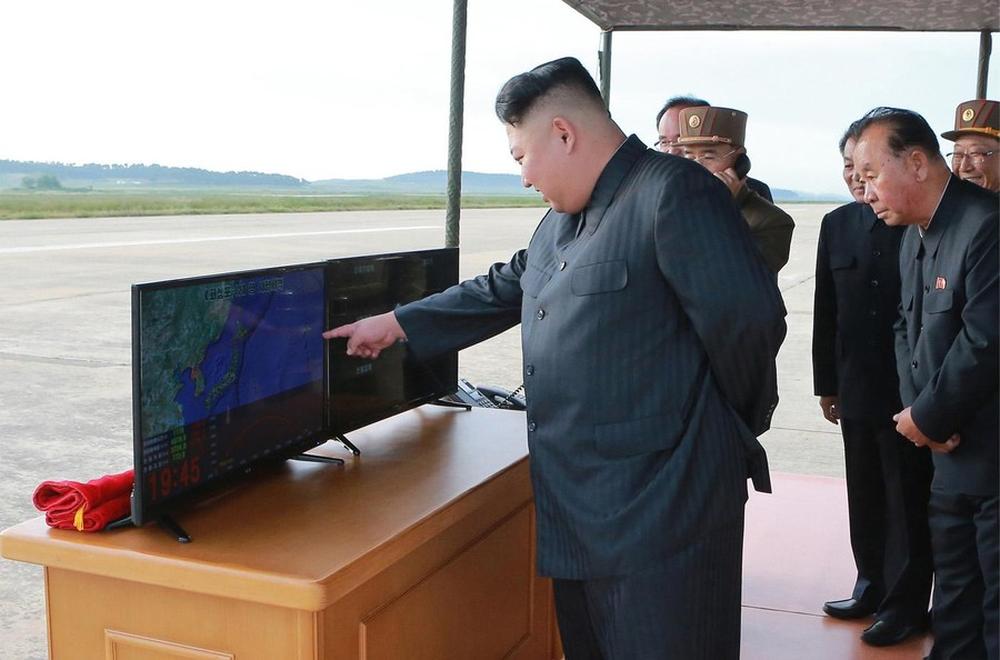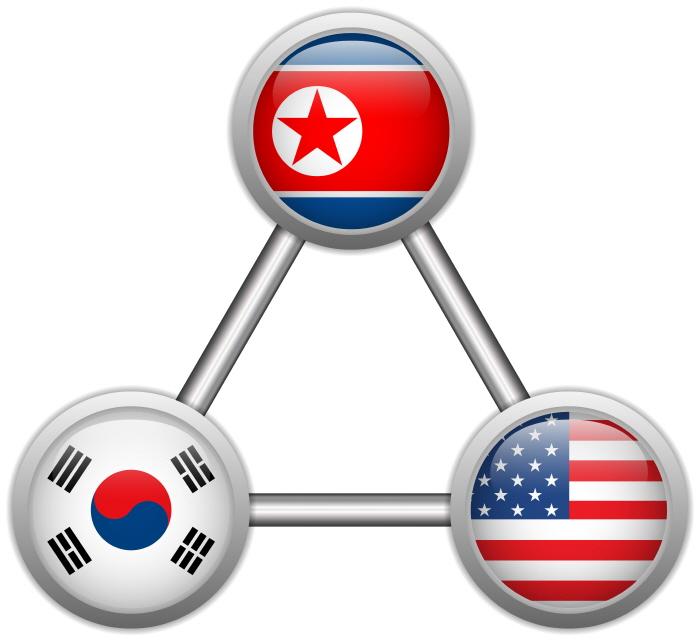- #North Korea
- #Sanctions & Human Rights
- #US Foreign Policy
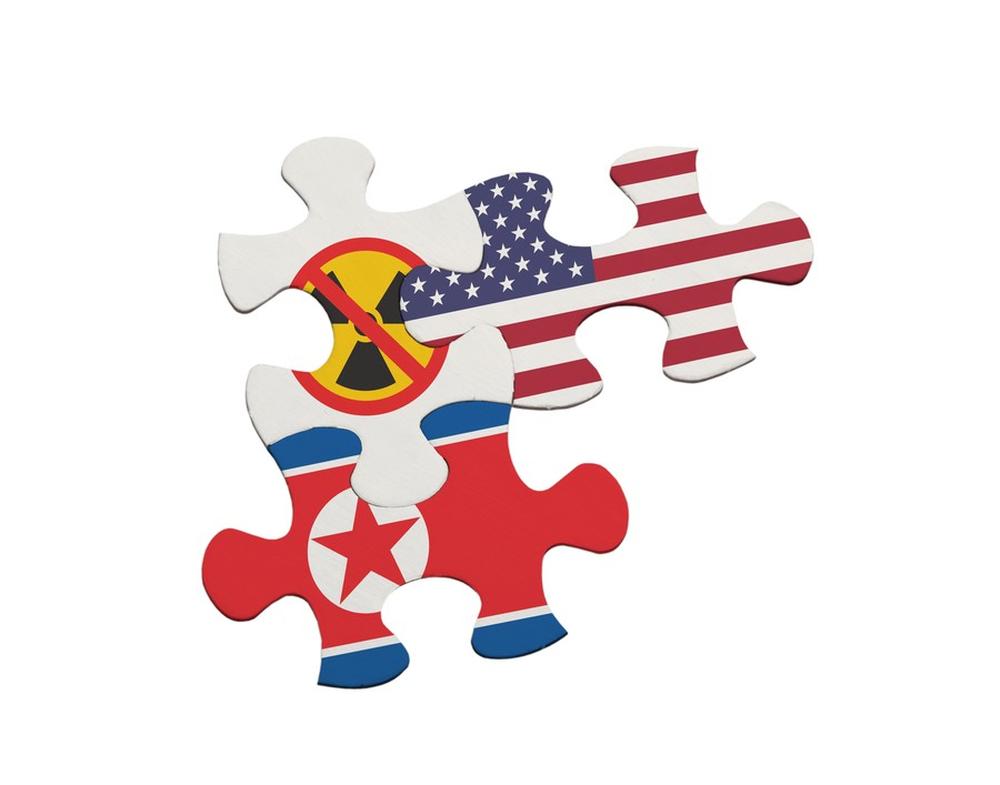
Since the US-DPRK negotiations in Stockholm broke down in October 2019, North Korea’s attitude towards the United States has exhibited two unusual characteristics. First, North Korea has refused to partake in negotiations over denuclearization despite the Biden administration’s relatively flexible approach to the issue. Second, even with the prolonged diplomatic stalemate, North Korea has refrained from its traditional approach of conducting nuclear and/or ICBM testing to pressure the United States and create a more favorable environment. What are the reasons behind North Korea’s recent behavior?
First and foremost, the author will make the following assessments as to why North Korea has not responded positively to the prospect of nuclear negotiations. Judging by its statements, North Korea remains adamant that it will come to the negotiating table only if the United States abandons its hostile policies. Given that U.S. hostile policies have hurt North Korea’s economy the most, this abstract demand can be interpreted as a sign that North Korea is waiting for the United States to change its policy on economic sanctions. North Korea has insisted that the United States reciprocate the North’s commitment to denuclearization by lifting sanctions in a phased manner.
North Korean attitude appears to have been influenced by its diplomatic experience dealing with the Trump Administration. In particular, it seems to believe that trusting President Trump’s favorable comments and hoping for a diplomatic breakthrough have resulted in North Korea tasting failures against a rather static U.S. negotiation team. Based on this experience, it appears that North Korea no longer trusts the American proposal that the two sides could engage in meaningful discussion if the North returns to the negotiating table. Rather, it is now firmly clinging to the strategy of waiting for the United States to display a change in attitude first before returning to negotiations.
The reason that North Korea is demanding that the two countries take simultaneous actions is because it does not believe the United States will give up hostile policies. Even though the United States has promised to lift economic sanctions and guarantee regime survival if North Korea gives up its nuclear weapons, North Korea fears that making the first move could lead to its political demise (similar to Libyan leader Muammar al-Qaddafi). At this current juncture, the ball remains on the court of North Korea especially since the Biden Administration has announced that it will adopt a new approach—different from the Trump Administration’s—and is willing to continue negotiations over denuclearization. However, the North Koreans insist that in order for them to return to the negotiating table, the details of the Biden administration’s new approach must be delineated at the very outset. From the United States’ point of view, this approach by North Korea may seem one-sided and inflexible. Yet, North Korea believes that it has already made a significant decision to suspend nuclear and ICBM testing for the sake of creating a favorable negotiating environment. North Korea considers this as a not-so insignificant gift to the United States. In fact, the four years that North Korea has refrained from conducting further nuclear and ICBM testing have served as important foundation for relative peace on the Korean Peninsula, even amidst diplomatic stalemate. It is difficult to deny that North Korea’s “initial gesture” has an underrated value especially given the fact that North Korea’s nuclear and missile testing have been major reasons for instability and crises on the Korean Peninsula over the past several decades.
This begs the question as to why North Korea has decided not to continue tradition by conducting nuclear and ICBM testing to pressure the United States amidst the diplomatic impasse. The answer to this question is because North Korea is evolving in a way that is unlike the North Korea of the past. More than anything, the direction of its national strategy and the way it conducts state affairs have shifted. Prior to April 2018, when the Workers’ Party of Korea shifted the direction of its national strategy, North Korea had emphasized stronger national defense and military-first politics. On the other hand, economic development is the foremost priority for North Korea today. In terms of state affairs, improving the living standards of North Koreans poses the greatest challenge for the regime. Unlike his father, who ruled the nation based on military might, Chairman Kim Jong-un aims to legitimize his rule by making North Korea “well off.” As part of this vision, Kim has shifted the resource allocation priority from the military to the economy.
After the shift in national priority, the Kim regime has begun to produce economic facilities from key munitions factories in an effort to improve the North Korean people’s economy. Additionally, more than a hundred thousand soldiers were re-assigned to work in economic construction sites. There are pundits who underestimate North Korea’s all-out economic initiatives by viewing them simply as a component of the North’s dual approach of economic and military development. Over the past three years, however, the front pages of almost every single North Korean state-sponsored media outlet, including Rodong Sinmun, have been about the economy. In order to achieve economic development, the North Korean leadership has undertaken domestic reforms, imported foreign resources and technologies into North Korea, and expanded economic cooperation initiatives by widening the spectrum of its foreign economic relations. For obvious reasons, this “open-door” policy has been unsuccessful due to the implementation of the rigorous international sanctions regime.
However, North Korea remains committed to a policy of international cooperation. This policy goes hand-in-hand with the realization that its pursuit of rapid economic growth will not attainable without resolving the nuclear development issue and that achieving social economic development that is on par with international standards is impossible. In June of this year, North Korea submitted to the UN its first Voluntary National Review (VNR) report on the Implementation of the 2030 Agenda for Sustainable Development, a process through which countries assess and present progress made in meeting the Sustainable Development Goals (SDG). This unprecedented decision by North Korea is testament to its strong commitment to international cooperation. Unlike in the past, North Korea’s VNR report was written in a rather candid and sincere manner.
In spite of being the target of rigorous sanctions, North Korea has focused on strengthening its economy by mobilizing all domestic as well as external resources. This is the reason why North Korea has refrained from provocations despite experiencing failures at the negotiation table. For North Korea, deteriorating US-DPRK relations or inter-Korean military skirmishes could escalate tensions on the Korean Peninsula, which will force the regime to relocate its human resources from the economy to the battlefield. Moreover, the regime may also have to rally the entire nation in preparation for war. These developments could derail the all-out effort by the Kim regime to further develop its economy. It is for these reasons that Kim—despite the diplomatic impasse and deteriorating inter-Korean relations—has veered away from tradition, stressing the importance of peace on the Korean Peninsula and showing extreme reluctance to engage in any military skirmishes near the border.
At the August 2018 ASEAN Regional Forum (ARF), North Korean Foreign Minister Ri Yong-ho declared during a speech that in order for North Korea to attain economic prosperity and improve the living conditions of North Koreans, “it is more important than ever for the Korean Peninsula and the surrounding region to be peaceful”—an unprecedented statement by a North Korean diplomat. The emphasis on the all-out economic development as a new national strategic agenda and the focus on the importance of international cooperation, which may seem like false hope, are in fact bringing about significant changes within North Korea, a country that has traditionally relied on provocations to escalate tensions on the Korean Peninsula. In essence, North Korea requires domestic as well as external stability so that it can fully focus on economic development. It is for this monumental reason that North Korea has refrained from provocations.
The two unusual characteristics of North Korea’s recent behavior show that it still possesses the will to engage in diplomatic negotiations over denuclearization. Unlike in the past, the Kim regime has not committed provocative behaviors following the inauguration of a new U.S. administration. The Biden Administration’s lack of specifics regarding its approach to negotiations has not discouraged the Kim regime from opting for a wait-and-see approach, which implies that it still has the intention to engage. This turn of events gives us hope that negotiations could restart once the United States offers North Korea with more details about its diplomatic approach.
Dr. Jong-Seok Lee is a senior research fellow at the Sejong Institute's Department of Unification Strategy Studies and concurrently serves as a James Laney Distinguished Professor of Yonsei University. Prior to this, Dr. Lee was the Republic of Korea's Minister of Unification in 2006 and Deputy Secretary-General of the National Security Council from 2003 to 2006. He received his Ph.D. in Political Science from Sungkyunkwan University in Seoul, South Korea and is an expert on North Korea-China relations, inter-Korean relations, and Korea's diplomatic/security objectives.
